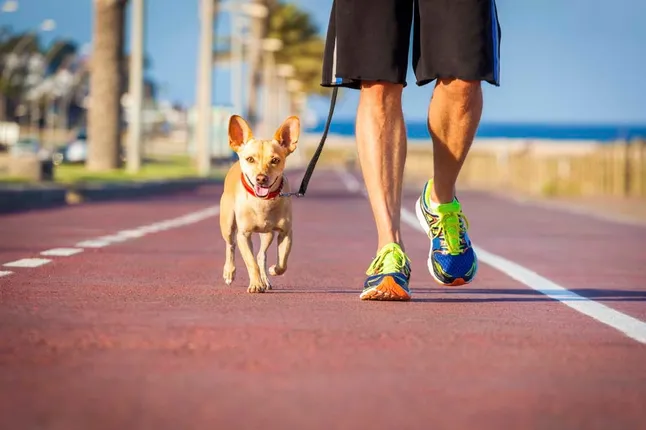At Sirius
Veterinary Orthopedic Center, our staff is led by
Dr. Chris Horstman, together we have helped thousands of
animals recover from a wide variety of orthopedic injuries, including the
relatively common condition known as a
luxating patella (you may also see this
condition referred to as a slipped knee cap or knee
dislocation). Read on to learn more about this disorder and how our Sirius
Vet Team can help.

What Is A Slipped Knee Cap?
Like humans, dogs have a small bone in each knee called the patella (or knee cap). Normally, this bone sits in the middle groove of the end of the thigh bone, where it meets with the lower leg to form the knee joint. Attached to this small bone is the quadriceps muscle (above the patella) and the patellar tendon (below the patella). When properly aligned, all three work together to help maintain normal motion of the knee itself.
Signs & Symptoms of a Slipped Knee Cap in a Dog
You know
your dog best, so if you notice anything unusual or different about the way
your dog walks and moves, you should contact your vet to see if an orthopedic surgeon
can help. Symptoms of a slipped knee cap will vary greatly, and may include:
- "Skipping" upstairs (to avoid bearing weight on the limb)
- Shaking, kicking, or extending the limb before walking on it (to "snap" the patella back in place, though it is likely to just dislocate again)
- In large dogs with lateral patellar luxation, they may present with a "knocked kneed" appearance
- In puppies with medial patellar luxation, they may present with a "bow-legged" appearance
In most cases, a luxating patella will be painful or uncomfortable, and can severely limit a dog's ability to walk, run, get off the floor, climb stairs, and play.
What Causes A Knee Cap Dislocation?
The two
main causes of a knee cap dislocation is trauma or a congenital defect.
Congenital defects may include hip dysplasia, malformation of the femur or
tibia, shortness of the quadriceps muscle, or an abnormally long patellar
tendon. Trauma can be anything such as a slip, trip, fall, or car
accident. In addition to being of a certain breed as mentioned above, a dog may
be more at risk for a knee cap dislocation if it is overweight or obese.
How Is A Luxating Patella Treated?
If your dog sustains a luxating patella, it's important to seek treatment from an orthopedic vet. If left untreated, the dog's lameness and dysfunction can become steadily worse and eventually continuous. While some dogs can adapt to this lameness, a slipped knee cap may increase the dog's risk of developing other problems including ligament tears, muscle strains, and arthritis.
- Relocate and realign the patellar
ligament and the tibial crest (a bony prominence where the patellar
tendon attaches).
- Deepen the femoral groove.
- Tighten the capsule around the joint.
Together, these three key techniques help prevent the patella from dislocating again. Prognosis of surgical correction is generally excellent, especially in small dogs and if the intervention is provided before arthritis develops in the knee. Our orthopedic vet team also takes the time necessary to educate pet owners on how to help their dog heal properly during the post-operative window.
Is Your Pet Demonstrating Signs Of A Dislocating Knee Cap? Schedule a Visit with Our Orthopedic Veterinarian in Omaha Today For Answers--And Solutions
If you've been looking for an orthopedic veterinarian near Omaha who can help your animal achieve meaningful and long-lasting improvement in its physical function, then get in touch with Sirius Veterinary Orthopedic Center today and ask to schedule a consultation. Here the staff treats every pet and pet owner with attention, professionalism, and compassion, and are honored to be your orthopedic vet team. Contact us at 402-934-1332 today.

